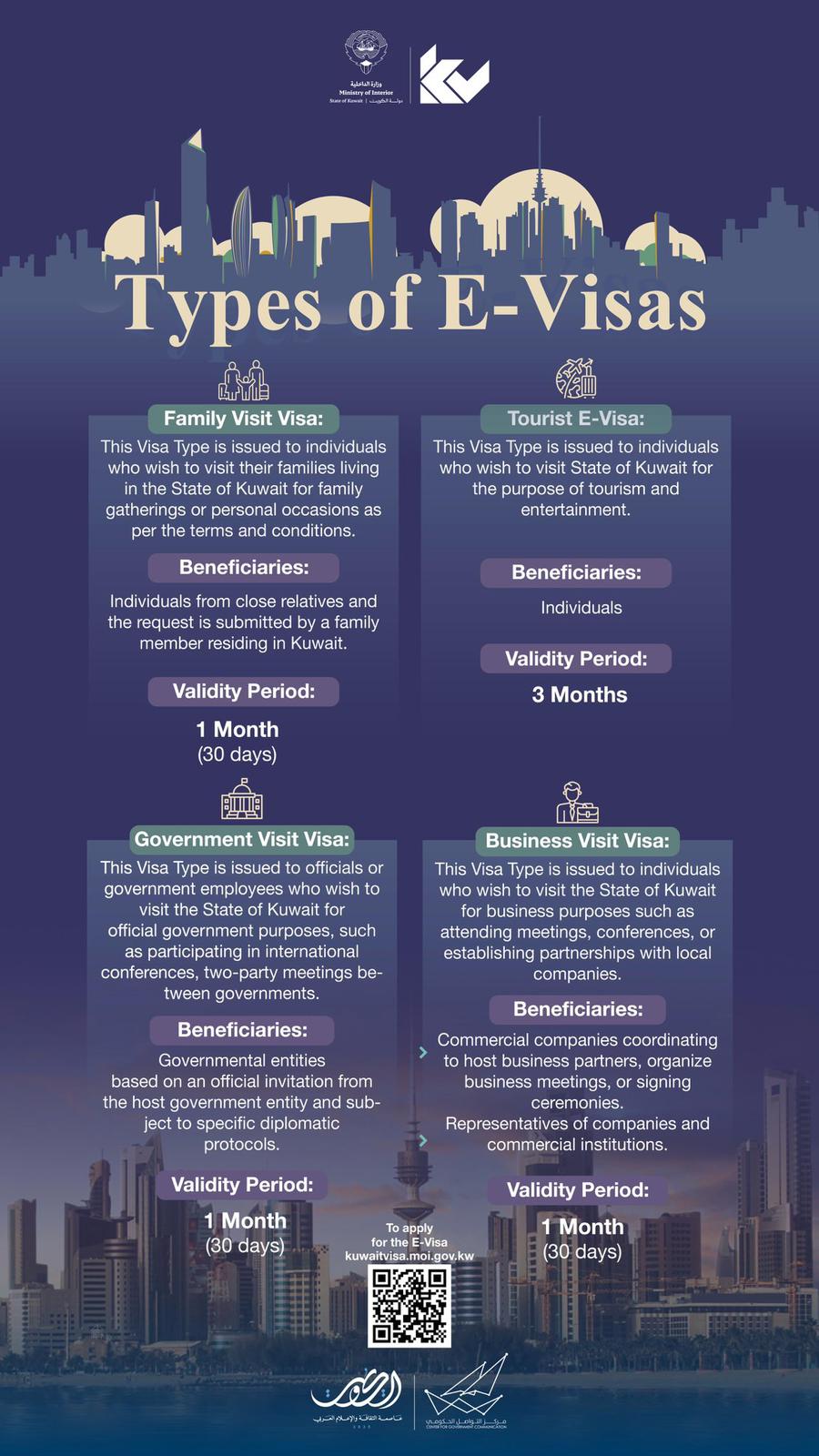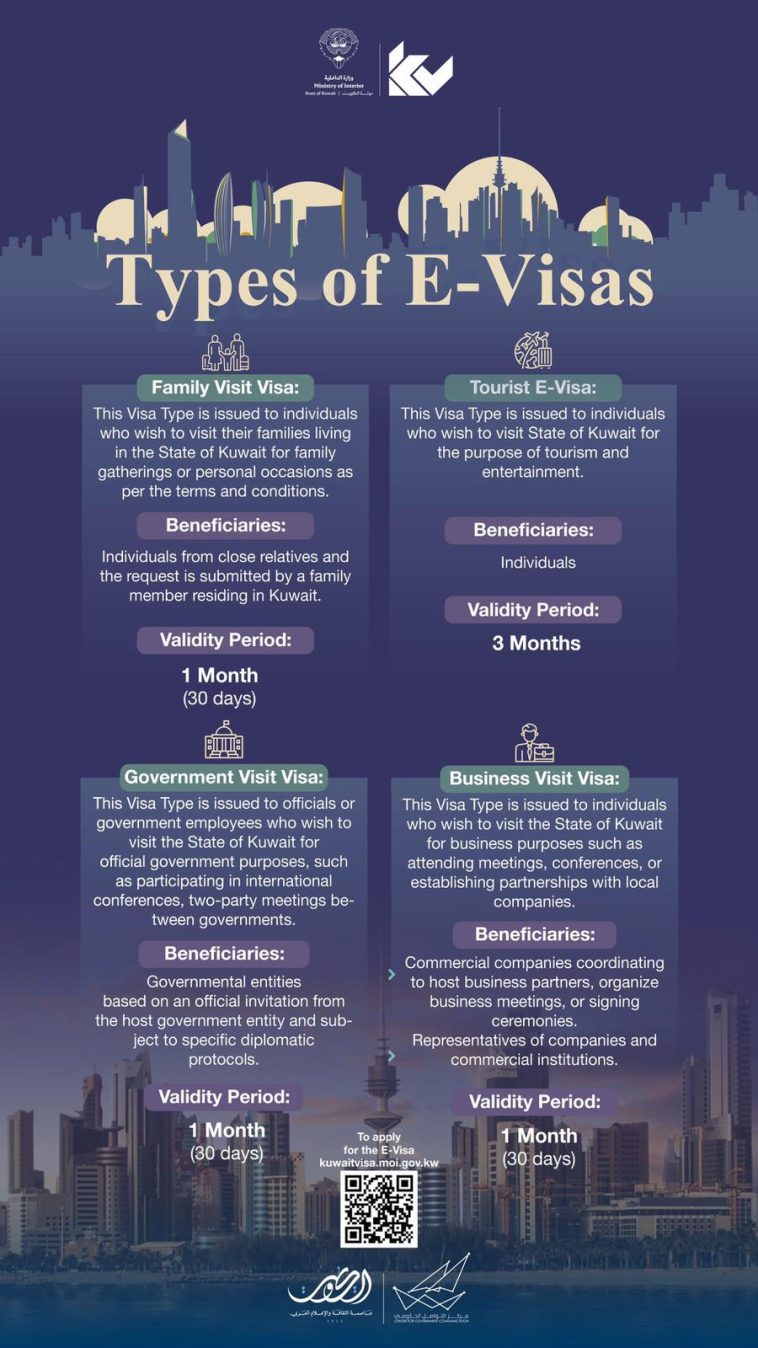
Opinion: Embracing Digital Transformation in Travel and Online Privacy
In today’s fast-changing technological landscape, governments and businesses are continuously pushing the envelope when it comes to digital services. From the launch of entirely online visa systems to increasingly sophisticated cookie consent policies, our world is rapidly evolving. This opinion piece explores the benefits and challenges that come with these trends — diving in to understand the tricky parts and tangled issues of digital diplomacy and online privacy.
The recent introduction of a fully online e-visa system between India and Kuwait is one shining example of how digital tools can reshape travel and diplomatic relations. At the same time, widespread public discussion surrounding cookie consent and data sharing highlights the delicate balance between steering through modern conveniences and safeguarding personal privacy. In this editorial, we take a closer look at these initiatives, offer our observations on potential pros and cons, and discuss how both government institutions and everyday users can benefit from robust digital transformation.
From Paper Trails to Digital Gateways: The Rise of E-Visas
It is no secret that diplomatic ties and international travel are increasingly being influenced by digital innovations. The launch of an entirely online e-visa platform for Kuwaiti citizens by India not only simplifies the application process but is also a symbolic gesture toward embracing digital diplomacy. Modern governments are working through the fine points of digitalization to deliver faster, more efficient, and more accessible services for their citizens and international visitors alike.
Benefits of Digital Visa Systems for International Travellers
There are many positive aspects to switching from traditional visa centers to fully automated digital systems. Some of these benefits include:
- Speedy Processing Times: Applications that once took weeks can now be processed in just a few days, with most expected to be finalized within three to four days after submission. This is a game changer for international business and tourism.
- Convenience and Accessibility: Without the need to physically visit a visa center, applicants can complete each step — from form submission and documentation to payment — from the comfort of home. This eliminates many of the nerve-racking delays associated with in-person procedures.
- Long-Term Validity: For example, the tourist visa under the new system is valid for up to five years, offering a super important advantage for repeat travellers.
- Cost Efficiency: With fees ranging between $40 and $80 (depending on the category and duration), the digital system helps make international travel more accessible by offering affordable solutions.
- Strengthened Bilateral Ties: Such digital initiatives reflect an enduring historic relationship between the involved countries, making it easier to foster mutual trust and cooperation.
In many ways, digital visa systems can be seen as part of a broader strategy to reduce bureaucratic red tape. By streamlining the application process, governments are ensuring that the twists and turns of procedural requirements no longer serve as a barrier to travel. Instead, these digital services are designed to be intuitive, allowing users to figure a path through complicated pieces of paperwork and security checks with ease.
Exploring the Online Visa Application Process between India and Kuwait
The recent announcement by Indian Ambassador to Kuwait, Dr. Adarsh Swaika, underscores the significance of this step in modern digital diplomacy. With the introduction of five different categories — tourism, business, medical, conference, and AYUSH (covering alternative medicine practices such as yoga and Ayurveda) — the improved e-visa system addresses a wide range of travel purposes.
Here are some subtle parts of this system that stand out:
- Streamlined Application Workflow: Every step — from application submission to payment — is conducted online, reducing the need for repeated visits to visa centers.
- Biometric Data Collection: Although biometric data is still collected upon arrival at Indian airports, this process is vastly simplified as the majority of the work is done digitally before the applicant even sets foot on the plane.
- Security and Documentation: Modern online systems employ advanced encryption and secure data storage to guard against identity theft and misuse. These security measures are designed to address the tangled issues of protecting sensitive personal information in the digital realm.
While there may be minor technical hiccups during the rollout phase, such challenges are not insurmountable nor unusual when introducing a new digital platform. In many scenarios, these growing pains are part of the evolution as the government and its technical partners work through the fine points and subtle differences that define successful large-scale digital initiatives.
Understanding Online Privacy: The Role of Cookies and Data Consent
As digital systems become more integrated into our daily lives, issues around online privacy take center stage. Modern websites and applications often rely on cookies, unique device identifiers, and other data-driven technologies to enhance user experience while personalizing content and advertisements. However, this reliance also raises several tricky parts — particularly when it comes to consent and data privacy.
The Essentials of Cookie Management and Data Consent
Cookies are small pieces of data stored on a user’s device that help websites remember key details about you. Although they serve many practical purposes, the collection and use of this data are loaded with potential issues that make cookie management both necessary and nerve-racking for many users. The cookie consent interfaces we encounter today are designed to balance these considerations:
| Aspect | Purpose | User Concern |
|---|---|---|
| Essential Cookies | Ensure the basic operation of the website. | Little to no concern as these are necessary for function. |
| Non-Essential Cookies | Improve user experience, personalize content, and analyze traffic. | Potential worry regarding how personal data might be shared. |
| Advertising Cookies | Customize advertisements and measure ad performance. | Concerns about the extent of data profiling and privacy. |
The detailed cookie policies provided by websites often explain how long cookies are stored (ranging from a few days to several years), what data they collect, and how that data is intended to be used. By clicking “Accept” on these platforms, users agree to store on their device all the different technological tracking methods described. An option to manage preferences is typically available at any time — allowing users to revise their choices as they get into or away from more disturbing bits of data usage.
Ways to Improve Digital Awareness about Data Usage
Educating digital consumers on the advantages and potential risks associated with cookies and other data-gathering tools is super important. Often, much of the scary language around cookies stems from a lack of clear explanation. Here are some tips to help users get around the confusing bits:
- Read the Privacy Policy: Although these pages can seem off-putting, understanding what is detailed in them is key to making an informed decision about your data.
- Review Consent Options: Look for links that say “Preferences” or “Manage your data,” and set your choices based on your comfort level.
- Stay Updated: Digital technologies evolve rapidly, and what applies today might not be the same tomorrow. Keeping an eye on updates can help you steer through any changes.
- Use Browser Settings: Modern browsers allow you to limit cookie usage or even block them entirely if you prefer a more conservative approach to privacy.
Many websites offer detailed tables outlining which third-party vendors can access your data and for what durations. Though these tables and lists may seem intimidating at first glance, taking a closer look can provide reassurance that there is a system in place designed specifically to grant you more control. Understanding these small distinctions is key to balancing convenience with privacy.
Balancing Digital Diplomacy and Personal Data Safety
One of the standout aspects of both the e-visa rollout and the extensive cookie consent systems is the effort to build trust between institutions and their users. Digital diplomacy is not solely about making data processing more efficient — it is also about ensuring that the relationship between a service provider (or a government) and its users remains respectful and secure. When countries like India take steps to modernize consular services, they demonstrate responsiveness to modern challenges and help create a more inclusive environment for international travel.
Digital Diplomacy: Improving Global Relations through Online Innovation
Digital diplomacy efforts, such as the e-visa launch highlighted earlier, serve as a bridge between nations. They work through the following key aspects:
- Enhanced Accessibility: Citizens from partner nations can enjoy a smoother and quicker visa application process, which helps boost tourism, business travel, and cultural exchange.
- Strengthened Bilateral Ties: Online service improvements are seen as gestures of goodwill and progress, reinforcing longstanding diplomatic connections between countries.
- Data-Driven Decision Making: The collection of biometric data and other information at points of entry supports not only security measures but also helps tailor subsequent services to the traveler’s needs.
- Economic Advantages: Reducing the administrative load associated with traditional visa processing can lead to significant cost savings and reduce workforce stress, benefiting the entire infrastructure.
Even though there are minor technical challenges and some of the hidden complexities inherent in any large-scale digital system, it is important to remember that such obstacles are typically temporary. As stakeholders get into the nitty-gritty of the system’s fine points, continuous enhancements are bound to take place. This is the beauty of digital diplomacy — it continuously evolves based on user feedback and technical advancements.
Preserving Personal Privacy While Embracing Digital Convenience
At the heart of the online experience is the ongoing debate on privacy and data management. While digital systems offer indispensable convenience, they also come with their own set of tangled issues regarding how personal data is stored, processed, and sometimes shared.
The growth of data-driven services means that everyday users must find a balance between leveraging online conveniences and protecting their personal information. The key lies in clear communication and transparency regarding data usage. Many organizations now offer detailed explanations on what data is being collected and how it is being used to tailor their content and advertisements to user preferences.
Users can take proactive steps to ensure their online experiences remain secure:
- Reviewing Privacy Settings: Most modern platforms let users update their data preferences at any time, so it is crucial to periodically review and adjust these.
- Understanding the Trade-Offs: Recognize that while enabling certain cookies may enhance personalized content delivery, it might also lead to the sharing of additional information with third-party partners. Knowing the trade-offs is essential for making informed choices.
- Using Privacy Tools: Antivirus software, secure browsers, and dedicated privacy extensions can further assist in mitigating any unwanted data tracking.
Data consent campaigns and privacy choice tools have become common features on many websites. Visual elements such as easy-to-read tables and bullet lists — similar to those highlighted above — help demystify the data processing practices that might otherwise feel overwhelming or intimidating. With clear guidelines in place, users can confidently adjust settings to protect their privacy without sacrificing the benefits that digital platforms offer.
Sorting Out the Fine Details: Empowering Users in a Digital Age
In a world where every click leaves a trace, educating users about their digital rights and responsibilities is super important. Beyond the convenience of services like e-visas and online cookie management, there lies a deeper conversation about empowerment and trust. Both governments and tech companies must find ways to make the process of personal data management as accessible and straightforward as possible.
Understanding Your Digital Footprint and How It Is Used
Every interaction with a website—be it applying for an e-visa or simply navigating through an online article—involves the use of tracking technologies. These mechanisms help tailor your online experience but also leave behind a trail of information. To help people figure a path through the myriad of data generated by their online actions, it is worthwhile to keep in mind the following points:
- What Is Being Collected: Data can range from your IP address and device identifiers to browsing history and personal preferences.
- How It Is Used: Information may be used to personalize content, provide targeted advertising, and improve the overall digital experience.
- Sharing Practices: Some data may be shared with third-party vendors and ad partners. Transparency about these practices is a key element of trust-building in the digital space.
- Your Control: Modern digital solutions now grant you the power to decide what stays and what is removed from your digital trail. Using tools like browser settings and dedicated privacy preferences, you can actively manage your online identity.
To make this easier for everyone, more websites are adopting clear, concise, and easy-to-navigate information panels. By providing a detailed layout of data practices, these platforms help users steer through the overwhelming sea of technical details with confidence and understanding.
Developing a Digital Culture that Values Transparency and Choice
Digital culture today is increasingly driven by the expectation that organizations are transparent about data collection and processing. The following principles can serve as a guideline for both service providers and users:
- Clarity in Communication: Organizations should use everyday language to explain technical processes, ensuring that the subtle parts of data usage are understandable to everyone.
- User-Centric Policies: Consent forms and privacy settings should be designed in a way that allows users to make clear, informed choices without being overwhelmed by nerve-racking legal jargon.
- Regular Updates: Technology evolves rapidly; hence, policies must be regularly updated to reflect new practices and emerging technologies. This proactive approach builds trust over time.
- Feedback Loops: Encouraging users to share their experiences and suggestions helps platforms refine their data policies. This collaborative approach ensures that any confusing bits are addressed quickly.
When organizations promise privacy and deliver seamless digital experiences, the result is a win-win situation. Trust deepens, international relations strengthen, and digital society as a whole becomes more resilient. In this era of digital diplomacy, every small twist and slight difference in data-handling practices can have significant implications on both personal privacy and international cooperation.
Looking Ahead: The Future of Digital Services in a Hyper-Connected World
There is no doubt that digital innovations — from e-visa systems to cookie consent platforms — have a transformative impact on our daily lives. As we look ahead, it is essential to acknowledge that these changes are not just about efficiency, but also about building trust and promoting transparency. In the digital age, the interplay between government services and personal data safety is a balancing act loaded with challenges yet bursting with potential.
Key Trends Shaping the Next Generation of Digital Services
Several key trends are emerging that will likely shape the online landscape in the years ahead:
- Increased Automation: The shift towards fully automated processes — like the online visa application system — reduces human error and accelerates processing times, even if there are a few technical bumps along the way.
- Enhanced Security Protocols: As digital services evolve, so will the measures to protect them. We can expect more robust encryption, multi-factor authentication, and real-time monitoring to address tricky security bits.
- Greater Transparency in Data Practices: With growing concerns over privacy, organizations are pressured to offer clearer explanations about data usage and processing. Expect more user-friendly interfaces that simplify these details.
- Collaborative Innovation: Governments, businesses, and tech providers must work together to develop systems that meet diverse needs. This cooperation will smooth out many of the tangled issues that currently challenge digital integration.
These trends are indicative of a broader shift in societal expectations. As consumers become more digitally savvy, they demand super important clarity and control over the services they use. Simultaneously, organizations must find creative solutions that allow them to maintain streamlined operations while addressing every fine detail of user privacy.
Adapting to a World Where Digital and Physical Realities Merge
Today’s digital innovations do not exist in a vacuum; they are deeply intertwined with the physical world. Consider the example of biometric data collection at airports — a process that merges online processing with in-person verification. This synthesis presents its own set of challenges:
- Data Integration: Ensuring that digital data is accurately and securely integrated with physical identity verification processes is one of the more complicated pieces of modern security protocols.
- User Education: It is essential that travelers understand how their data is used both online and in real life. Public education campaigns can help reduce the nerve-racking uncertainty around these practices.
- Legal and Regulatory Considerations: As digital services expand, legislative frameworks must adapt to cover these new forms of data collection and processing. This involves finding your way through a maze of evolving policies and compliance requirements.
The convergence of digital and physical systems is likely to influence the evolution of public services for years to come. In this environment, agencies and service providers will have to be even more proactive in addressing the slight differences and hidden complexities that arise when two different worlds meet.
Conclusion: A Call for Balanced Innovation and Trust
The world of digital services is a dynamic mix of breakthroughs and thorny challenges. From the seamless online visa application systems that are redefining international travel to the ever-more granular cookie consent policies that seek to protect our privacy, we are living in a time of both remarkable growth and significant responsibility.
Government institutions around the globe are working hard to iron out the confusing bits and find their way through the maze of technological advancements. Modern digital diplomacy is about more than just cutting-edge technology — it is also about building bridges of trust through clear communication and user empowerment. At the same time, individual citizens must take an active role in understanding how their data is collected and used, making informed choices, and utilizing the privacy tools at their disposal.
For those of us navigating these new digital realities, the key message is this: the future of technology lies in striking a careful balance between innovation and privacy. While digital systems promise convenience and efficiency, they also come with responsibilities that both providers and users must shoulder. This means embracing every twist and turn with both caution and optimism, knowing that the road ahead may have a few nerve-racking moments, but it is also paved with countless opportunities for growth.
As we continue to adopt and adapt to these digital innovations, let us work together to foster systems that are not only highly effective but also transparent and respectful of individual privacy needs. Whether you are a government official, a business leader, or simply an everyday internet user, the path forward involves a collaborative effort to ensure that technology remains a tool for empowerment and global connectivity.
Ultimately, our digital future will be shaped by the choices we make today. By approaching digital transformation with open minds and a commitment to transparency, we can create a world where both technological efficiency and personal privacy go hand in hand — a world where modern digital diplomacy is celebrated as much for its convenience as for its commitment to protecting our individual rights.
This journey may seem full of problems and intimidating twists and turns at times. Yet, with a clear focus on communication, education, and continuous improvement, we can be confident that the digital systems transforming our lives will do the same for international relations, public services, and personal data security. In the end, balanced innovation built on trust is not just an ideal — it is a must-have foundation for our rapidly evolving digital society.
Originally Post From https://gulfnews.com/world/asia/india/india-launches-e-visa-for-kuwait-from-july-14-5-year-tourist-visas-available-1.500196888
Read more about this topic at
Going Digital: The Banking Revolution
United States Will Soon Turn Your Visa Paperless


